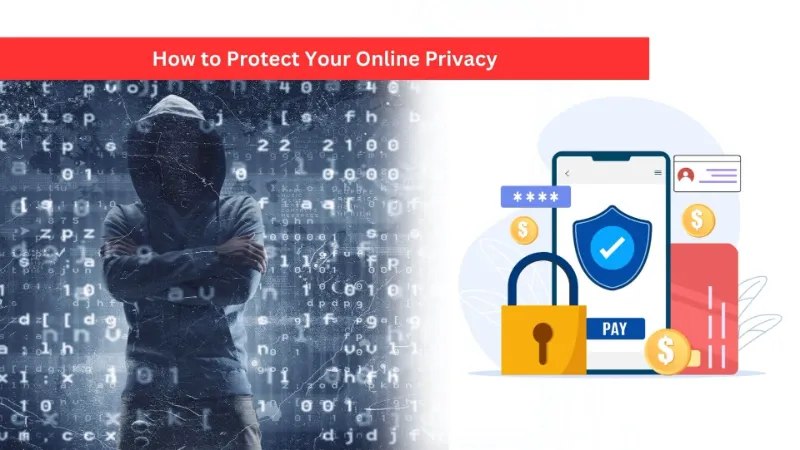Within the age of the web, defending your on-line privateness is of paramount significance. The digital panorama is rife with threats to your private data, from information breaches to tracking cookies. Nevertheless, by following a couple of key practices and implementing the precise instruments, you’ll be able to considerably improve your on-line privateness. This is a complete information on defend your on-line privateness:
1. Use a Digital Personal Community (VPN)
A VPN is a strong software for safeguarding your on-line privateness. It encrypts your web connection, making it difficult for snoopers, together with your Web Service Supplier (ISP), to observe your on-line actions. This is use a VPN:
- Select a good VPN service supplier.
- Set up the VPN software program in your machine.
- Connect with a VPN server.
- Your web site visitors shall be routed by the VPN server, making certain your on-line actions are safe and personal.
2. Safe Your Wi-Fi Community
Your own home Wi-Fi community is usually a weak hyperlink in your on-line privateness if not correctly secured. Observe these steps to safe it:
- Change the default router login credentials to sturdy, distinctive ones.
- Allow WPA3 encryption to your Wi-Fi community.
- Change the default SSID (community identify) to one thing distinctive.
- Disable distant administration of your router.
- Usually replace your router’s firmware.
3. Use Robust and Distinctive Passwords
Utilizing strong, unique passwords to your on-line accounts is significant. This is handle your passwords successfully:
- Use a password supervisor to generate and retailer complicated passwords.
- Allow two-factor authentication (2FA) every time potential for an additional layer of safety.
4. Maintain Your Software program and Working Programs Up to date
Software program and working system updates typically embody safety patches. Be sure that to:
- Allow automated updates to your working system, software program, and functions.
- Usually test for and set up updates.
5. Watch out for Phishing Makes an attempt
Phishing is a typical methodology utilized by cybercriminals to steal your private data. To keep away from falling sufferer to phishing assaults:
- Be cautious when clicking on hyperlinks in emails or messages.
- Confirm the legitimacy of internet sites by checking for safe connections (https://) and inspecting the URL.
6. Configure Privateness Settings
Modify the privateness settings in your units, social media accounts, and different on-line companies to restrict the information you share. Additionally, assessment app permissions to make sure they’ve solely the mandatory entry.
7. Use Encrypted Communication
For delicate conversations, use encrypted messaging apps or e-mail companies. Finish-to-end encryption ensures that solely you and the recipient can learn the messages.
8. Be Cautious with Social Media
Social media platforms is usually a goldmine for private data. Shield your privateness on social media by:
- Reviewing and adjusting privateness settings to restrict the visibility of your posts and profile data.
- Be aware of what you share and with whom.
9. Use a Personal Browser
Personal or incognito searching modes are useful for stopping your searching historical past from being saved. Nevertheless, do not forget that it would not make you fully nameless; your ISP and web sites should observe you.
10. Shield Your Location Knowledge
Apps and web sites typically request entry to your location information. To guard your location privateness:
- Solely grant location entry to apps that genuinely want it.
- Disable location companies when not wanted.
11. Usually Delete Cookies and Browser Historical past
Cookies and searching historical past can reveal your on-line habits. Clear these frequently, or use browser extensions that robotically handle them for you.
12. Educate Your self About On-line Privateness
Staying knowledgeable about on-line privateness threats and finest practices is vital to defending your information. Educate your self by dependable sources, information, and articles.
13. Safe Your E-mail
E-mail is a typical goal for cyberattacks. Safe your e-mail account by enabling 2FA, utilizing sturdy passwords, and avoiding suspicious hyperlinks and attachments.
14. Usually Monitor Your On-line Presence
Seek for your identify and different private data on-line to see what data is publicly out there. Request removing of private information from web sites the place potential.
15. Use a Privateness-Centered Search Engine
Think about using privacy-focused search engines like google and yahoo like DuckDuckGo or StartPage, which don’t observe your search queries.
16. Evaluation App Permissions
Usually test the permissions granted to cell apps and revoke pointless ones.
17. Contemplate Browser Privateness Extensions
There are browser extensions, reminiscent of advert blockers, script blockers, and privacy-focused instruments, that may improve your on-line privateness.
Defending your on-line privateness requires diligence and common upkeep. By following these practices and utilizing the precise instruments, you’ll be able to considerably cut back the dangers to your private data and luxuriate in a extra non-public and safe on-line expertise.
